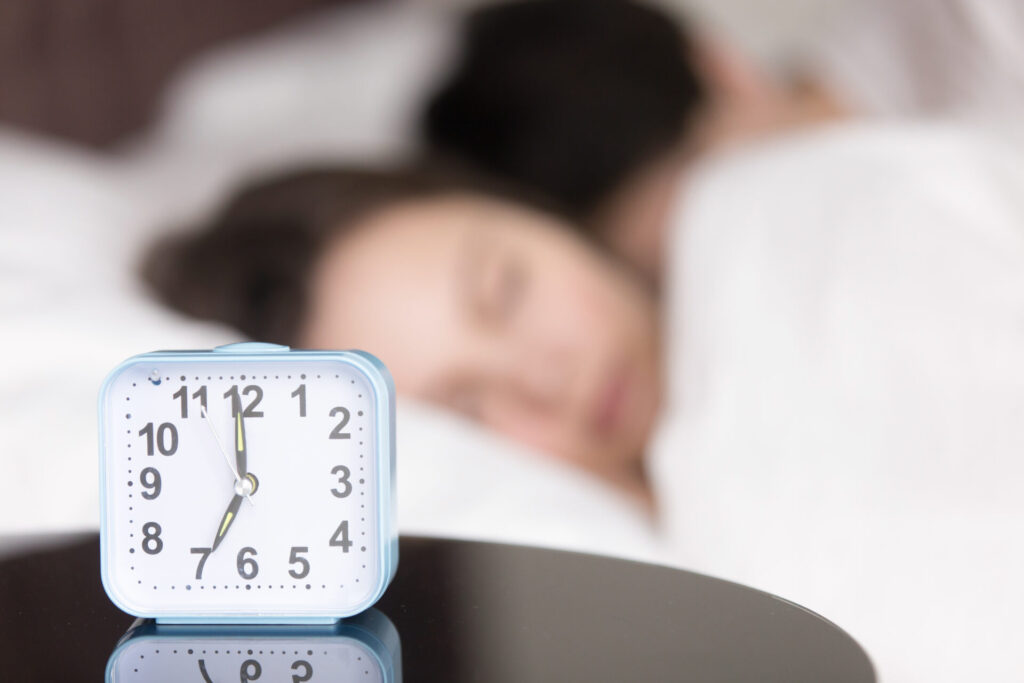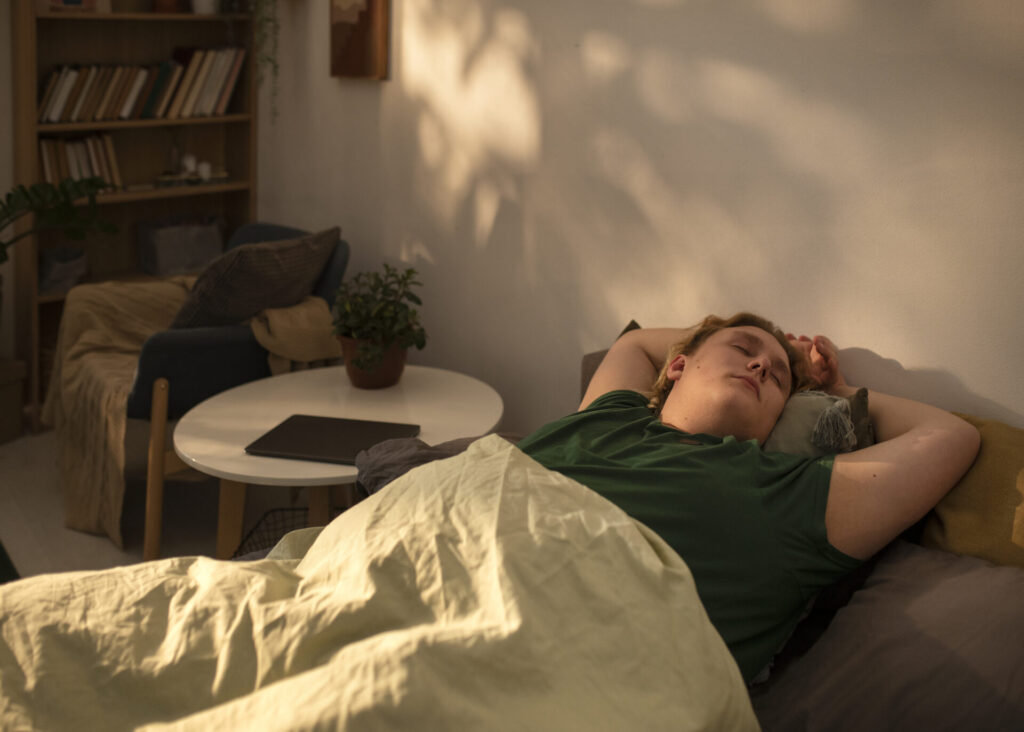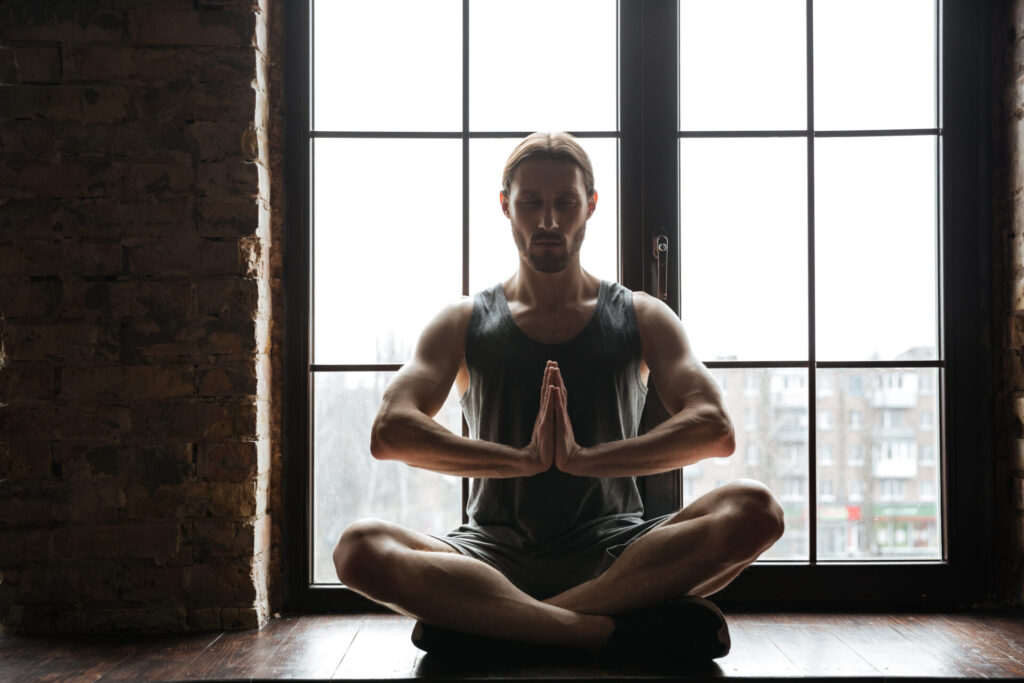Struggling to Fall Asleep? Here’s How to Fix It

Ever find yourself staring at the ceiling, mind racing, while the hours tick by? You’re not alone. Sleep struggles are more common than you think, and they can take a serious toll on your energy, mood, and overall health. But the good news? There are plenty of simple, science-backed strategies to help you fall asleep faster and wake up feeling refreshed.
This guide breaks down the best ways to improve your sleep—without complicated routines or expensive gadgets. Ready to get better sleep? Let’s dive in.
1. Stick to a Sleep Schedule

Your body operates on an internal clock called the circadian rhythm. Going to bed and waking up at the same time every day yes, even on weekends trains your body to fall asleep naturally.
How to make it work:
- Set a consistent bedtime and wake-up time.
- If needed, adjust your schedule gradually (in 15-minute increments).
- Avoid long naps during the day—they can throw off your rhythm.
Once your body gets used to a routine, you’ll start feeling sleepy around the same time every night, making it easier to fall asleep quickly.
2. Create a Relaxing Bedtime Routine
A winding-down routine signals to your brain that it’s time for sleep. The trick is to engage in relaxing activities that don’t involve screens or bright lights.
Try this:
- Read a book (a physical one, not on your phone).
- Take a warm bath to help lower your body temperature.
- Do some light stretching or deep breathing exercises.
- Listen to calming music or nature sounds.
Over time, your brain will associate these activities with sleep, making it easier to transition into rest mode.
3. Optimize Your Sleep Environment

Your bedroom should be a sleep sanctuary—comfortable, cool, dark, and quiet.
Quick fixes:
- Use blackout curtains to block light.
- Keep your room at a cool temperature.
- Invest in a good-quality mattress and pillows.
- Use white noise machines or earplugs to block disruptive sounds.
A clutter-free, comfortable environment makes a big difference in how easily you fall asleep and stay asleep.
4. Limit Blue Light Exposure
Screens emit blue light, which messes with your melatonin production (the hormone that makes you sleepy).
Simple solutions:
- Avoid screens at least an hour before bed.
- If you must use devices, enable night mode or wear blue-light-blocking glasses.
- Swap scrolling for a more relaxing bedtime habit like journaling or meditating.
By reducing blue light exposure, you allow your brain to naturally wind down for sleep.
5. Watch Your Caffeine and Alcohol Intake

Caffeine and alcohol can both disrupt sleep but in different ways.
What to do:
- Cut off caffeine (coffee, tea, energy drinks) at least 6 hours before bed.
- Be mindful of hidden caffeine in sodas, chocolates, and some medications.
- Avoid alcohol before bed—it may make you drowsy, but it disrupts deep sleep later in the night.
6. Exercise Regularly
Regular movement helps regulate your sleep cycle, but timing matters.
Best practices:
- Exercise for at least 30 minutes daily (even a brisk walk counts.
- Avoid high-intensity workouts close to bedtime—these can increase adrenaline levels and make it harder to wind down.
- Evening exercise? Option for low-impact activities like yoga or stretching.
Your body will thank you with better sleep and increased energy levels during the day.
7. Try the 4-7-8 Breathing Technique

This simple breathing exercise calms your nervous system and helps you relax.
How it works:
- Inhale deeply through your nose for 4 seconds.
- Hold your breath for 7 seconds.
- Exhale slowly through your mouth for 8 seconds.
- Repeat until you feel relaxed.
This technique helps lower heart rate and reduce stress, making it easier to drift off.
8. Reduce Stress and Anxiety

If racing thoughts keep you up, managing stress before bed is crucial.
Try this:
- Journal your thoughts to clear your mind.
- Practice mindfulness or meditation.
- Use progressive muscle relaxation (tensing and releasing muscle groups one at a time).
- Consider guided sleep meditation apps to help you unwind.
A calm mind leads to faster and better-quality sleep.
9. Avoid Heavy Meals Before Bed

Late-night snacking or heavy dinners can cause discomfort and indigestion, keeping you awake.
What to do:
- Finish eating at least 2-3 hours before bedtime.
- Avoid spicy, fatty, or sugary foods close to sleep.
- Opt for sleep-friendly snacks like bananas, almonds, or warm milk if you’re a little hungry.
What you eat and when you eat can impact your ability to fall asleep smoothly.

